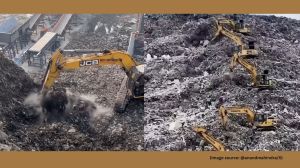Quixplained: Why Omicron is high risk, what you should do
What is different about Omicron and why is it deemed a high risk? Do vaccines work against it? What should you do? Take a look.
 Omicron was first identified by scientists in South Africa. (Express Illustration)
Omicron was first identified by scientists in South Africa. (Express Illustration)
The World Health Organization has classified a new variant of the novel coronavirus, which belongs to a lineage named B.1.1.529, as a ‘variant of concern’, and named is Omicron. This variant was first identified by scientists in South Africa, but has spread to nearly a dozed countries including Australia, Italy, Germany, the Netherlands, Britain, Hong Kong, Botswana and Belgium.
So, what is different about Omicron and why is it deemed a high risk? Do vaccines work against it? What should you do? Take a look:
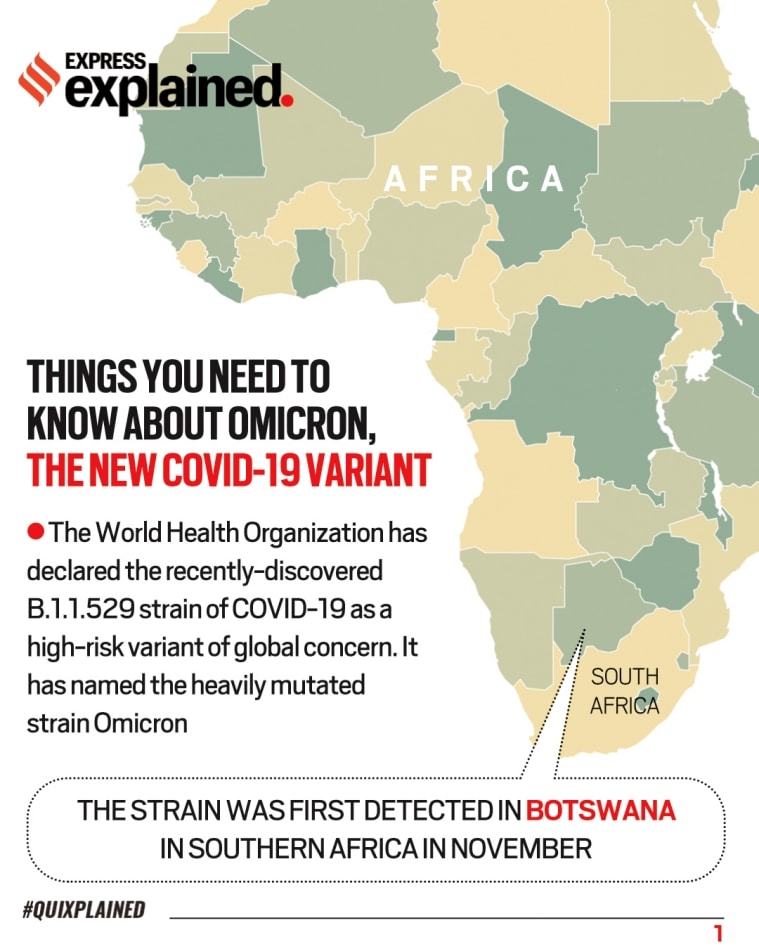 What is Omicron, the new Covid-19 variant?
What is Omicron, the new Covid-19 variant?
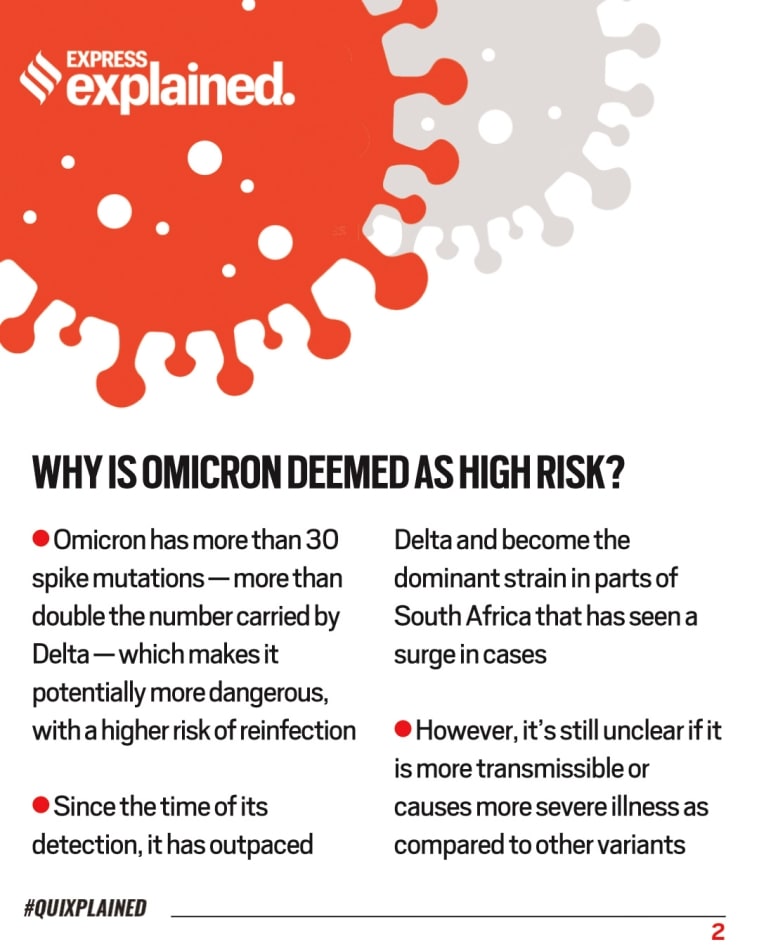 Why is Omicron deemed as high risk?
Why is Omicron deemed as high risk?
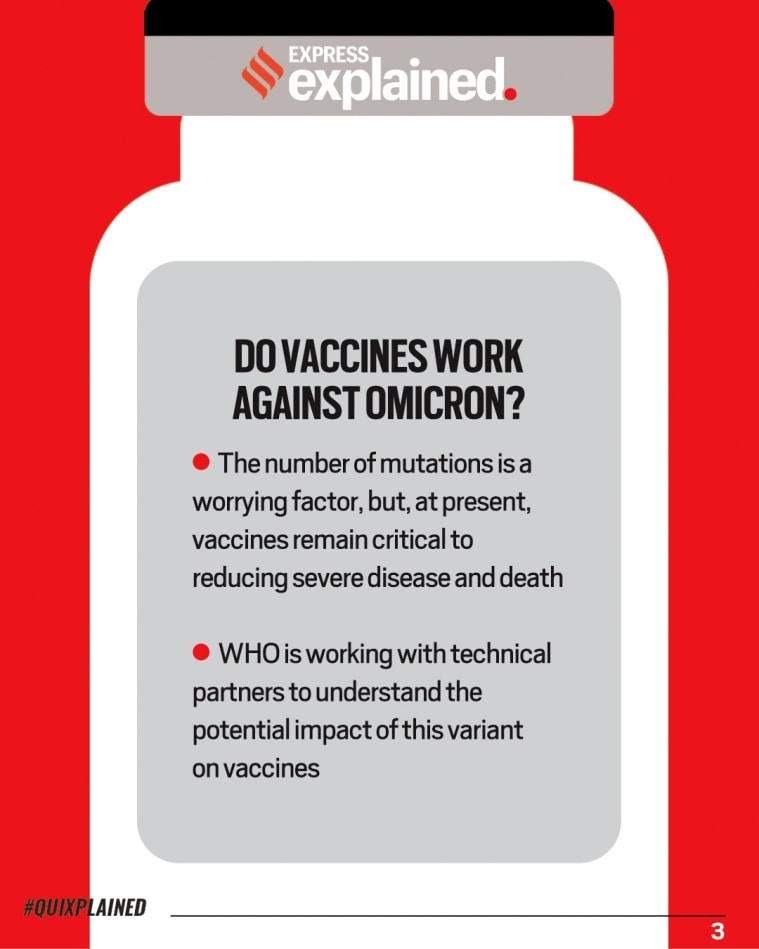 Do vaccines work against Omicron?
Do vaccines work against Omicron?
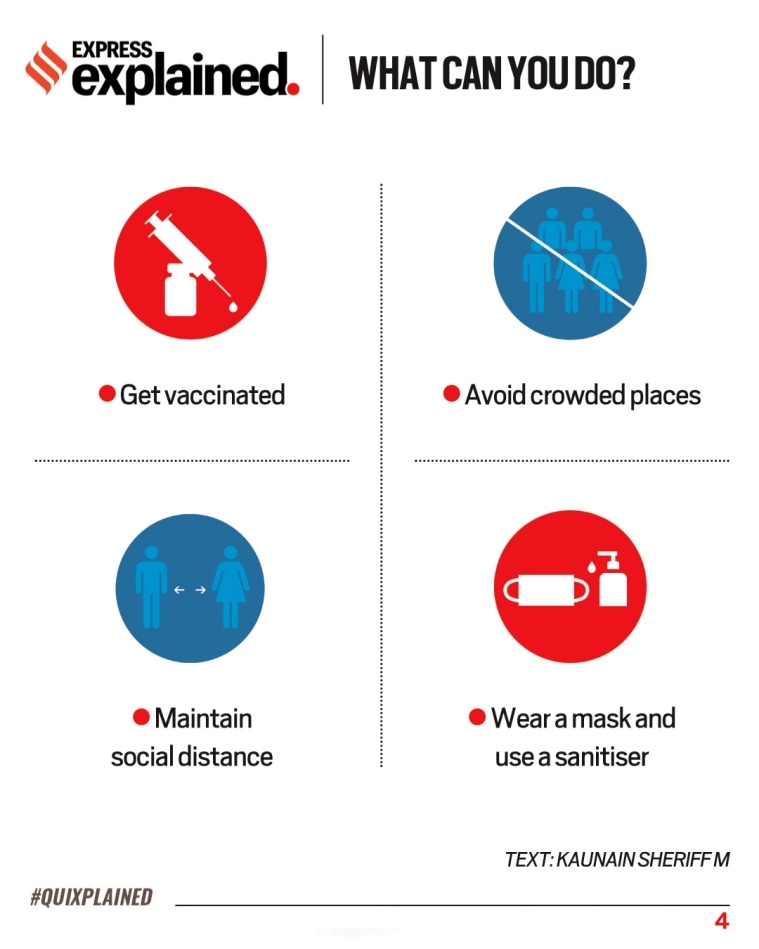 Omicron variant: What should one do?
Omicron variant: What should one do?
The emergence of the new variant shows once again that the pandemic is far from over — and Covid-appropriate behaviour is critical for breaking the chain of transmission: masking, social distancing, good ventilation in all shared spaces, and washing or sanitising hands and surfaces regularly.
Newsletter | Click to get the day’s best explainers in your inbox
- 01
- 02
- 03
- 04
- 05
















